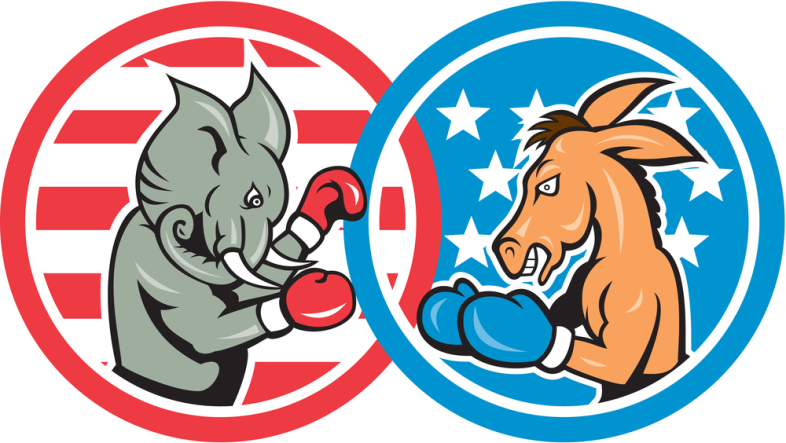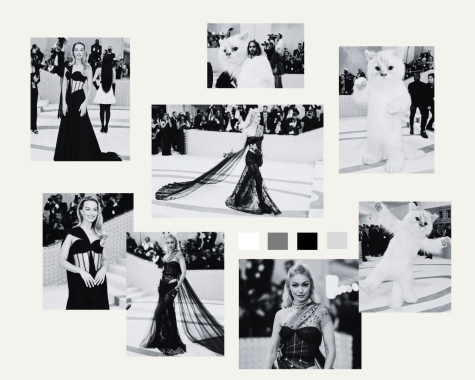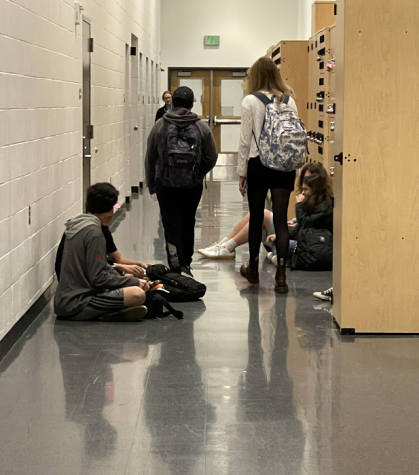The Ongoing Debate: Does the Two Party System Need to be Modernized?
Ben:
For years, the American political landscape has been dominated by two parties: the Democratic Party and the Republican Party. The power to change US policy lies – almost – exclusively within their hands. Over time, however, the electoral system – which, has thus far, reinforced the two-party stranglehold overpower – has continued to highlight its own flaws – namely, the divisive connotations that the two-party system creates by painting American politics as black and white. People base their votes more on a candidate’s party, and less on an individual candidate’s plans for policy reform or personal beliefs. This makes it harder to win the presidential race if you’re not running under the banner of the two leading parties. Candidates must now settle for a major party to run within, rather than find a platform that supports their ideals, entirely. History has shown that, realistically, only a Democrat or Republican can take office, and whether or not you align with either party – to a T – it’s mandatory to play nice with at least one, to even have a chance of getting up on the final debate stage. For an occasion as momentous as an election, I feel many are too complacent with how power is distributed between the parties.
Keep in mind, the issue is not that the Democrats and Republicans, in particular, are the two sides of American politics, it’s that there are only two viable sides to begin with. Other duos that have shared the spotlight, in the past, include the Whig Party and the Democratic Party; the Democratic Party and the National Republican Party; as well as the Democratic-Republican party and the Federalist Party. Replace the current combo with any of these past parties, and the problem still remains.
Duverger’s Law – named after the French sociologist Maurice Duverger – is the theory that there is typically no significant contest from third-parties due to the fact that there is no gain or reward to be had from simply winning a percentage of the vote. In order to win, you must receive the majority of the electoral votes. Voters don’t want to waste their vote, so they’ll give it to an individual who they know has an actual chance at winning. Therefore, the system perpetuates the duopoly of power and creates almost an invisible two-party battleground, regardless of whether or not an actual two-party system is officially declared or imposed.
The obvious alternative to the current system is a multi-party system. To those either bewildered at the idea of a multi-party America, know that it’s a tried and true method of governing that can be found among some of America’s closest allies. Nations such as India, Brazil, Israel, etc. all have a functioning multi-party system in place.
One benefit of a multi-party system is that it allows voters to freely search for alternative candidates or parties, without worrying about contributing to the “spoiler effect” you’ll often hear brought up in discussions of third-party voting. Also, allowing candidates to form or find a platform that will allow their voices to be fully-heard eliminates the risk of parties becoming bloated, or having major differences of opinion among their respective candidates.
Riley:
Although a multi-party system may seem ideal, how can it be truly implemented to allow a realistic chance at a candidate winning? Many people point to our current third party system, which doesn’t give these candidates an equal shot at winning the election, so people are forced to settle for a member of the two parties that best fits their ideologies, or vote with their full consciousness. This is where something called Ranked Choice Voting comes into play.
Ranked-choice voting is, essentially, where people “rank” the candidates from most desirable (1) to least desirable (below 1). This isn’t a new system, Maine has had this implemented since 2018, with it being first used in a presidential election this year. As an example, a progressive Mainer may rank Howie Hawkins (the green party candidate) as 1, Joe Biden (the democratic candidate) as 2, and so forth. If a candidate does not receive a plurality of the votes (as Howie Hawkins or Jo Jorgenson are not expected to do), these people’s first choice gets eliminated and their second choice becomes their vote. Many Mainers may opt-out of the system and only give a 1 ranking, but for someone expecting to vote third party, this can help ensure they get their voice heard.
Now, this may lead to the same system we have currently if we don’t begin systemic change into how we do our elections.
Your donation will support the student journalists of Mountainside High School. Your contribution will allow us to purchase equipment and cover our annual website hosting costs.

Riley Hoerner is a passionate writer for the News department. Not only does he enjoy reminiscing about his childhood through 2000’s rap but he also loves...

Originally, Benjamin Rejab had not much interest in Journalism. He signed up because he felt he was a strong writer, ultimately finding himself really...








